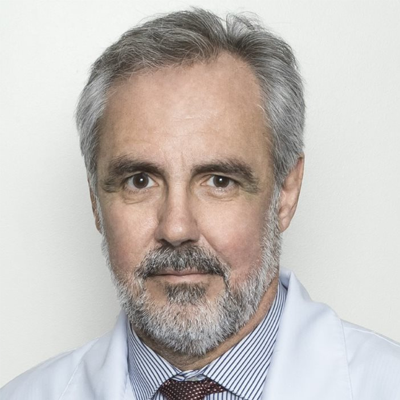
Cancer in My Community is a Cancer.Net Blog series that shows the global impact of cancer and how people work to care for those with cancer in their region. Carlos Barrios, MD, is the Director of the Latin American Cooperative Oncology Group (LACOG) in Porto Alegre, Brazil, that is made up of more than 100 investigators at more than 70 institutions in 16 countries in Latin America. Dr. Barrios is also the Director of Clinical Research at Oncoclínicas Group in Brazil. He has a strong interest in the implementation of cooperative research infrastructures in Latin America.
Why I care for people with cancer
I found treating cancer to be an incredibly interesting challenge during my years training to become a doctor. I was attracted to oncology from the start because many cancer cases involve most, if not all, of the organ systems in the body. However, the most interesting aspect of the disease for me at the time, which continues to be true to this day, was the different ways people with cancer and their families react to the disease. While the oncology field has evolved significantly over the last few decades and our understanding of the basic mechanisms of the disease has improved in ways we thought impossible just a few years ago, the very particular and personal ways people respond to a cancer diagnosis remains, for me, a huge challenge.
In a way, the personalized approach we now use for treating people with cancer has always been present in our emotional attitude towards our patients. Understanding how each one of them reacts to the perception of a devastating illness, even if many times their cancer is treatable or curable, is a source of continuous interest for me. The ability to help guide patients through this process is unquestionably one of the most important and satisfying parts of my career as an oncologist.
What cancer is like in Brazil
Brazil is a large country of over 200 million people with unique geographical features and enormous health disparities. Although we all recognize international differences in the way people with cancer are cared for, Brazil itself is an example worth analyzing. While 25% of the Brazilian population has some form of private insurance, most people are cared for in the public system, called Sistema Único de Saúde (SUS). Most, though not all, private insurances provide access to top-of-the-line cancer treatments. The public system, however, does not traditionally cover the newer, higher-cost cancer medications. Because of this, treating our patients based on the results from recent clinical trials, which have shown remarkable improvements in outcomes in many cancer types, is not possible for the majority of the country’s population.
While this is a complex problem with a multitude of factors to consider, the personal approach I have taken to minimize at least some of these disparities is to develop a professional and dedicated infrastructure to conduct and increase access to clinical trials. However, it is worth noting that only a small portion of ongoing clinical trials are accessible to the population outside of developed countries. In Latin America, only 5% of clinical trials registered at ClinicalTrials.gov are available. While I recognize that creating the infrastructure for and stimulating participation in clinical trials will not solve all of the disparities that exist in cancer care in Brazil, it will certainly bring hope to some people with cancer and their families not only in my country, but those with cancer anywhere in the world.
Where patients can find local resources and support
A number of Brazilian websites have useful information to help people with cancer and their families. Sociedade Brasileira de Oncologia Clínica (SBOC) has many resources available and offers general cancer information. The Oncoguia website also has many patient education and support materials. Finally, information about research and clinical trials in Brazil, including ongoing studies, can be found at the LACOG website and the CURA Project.
